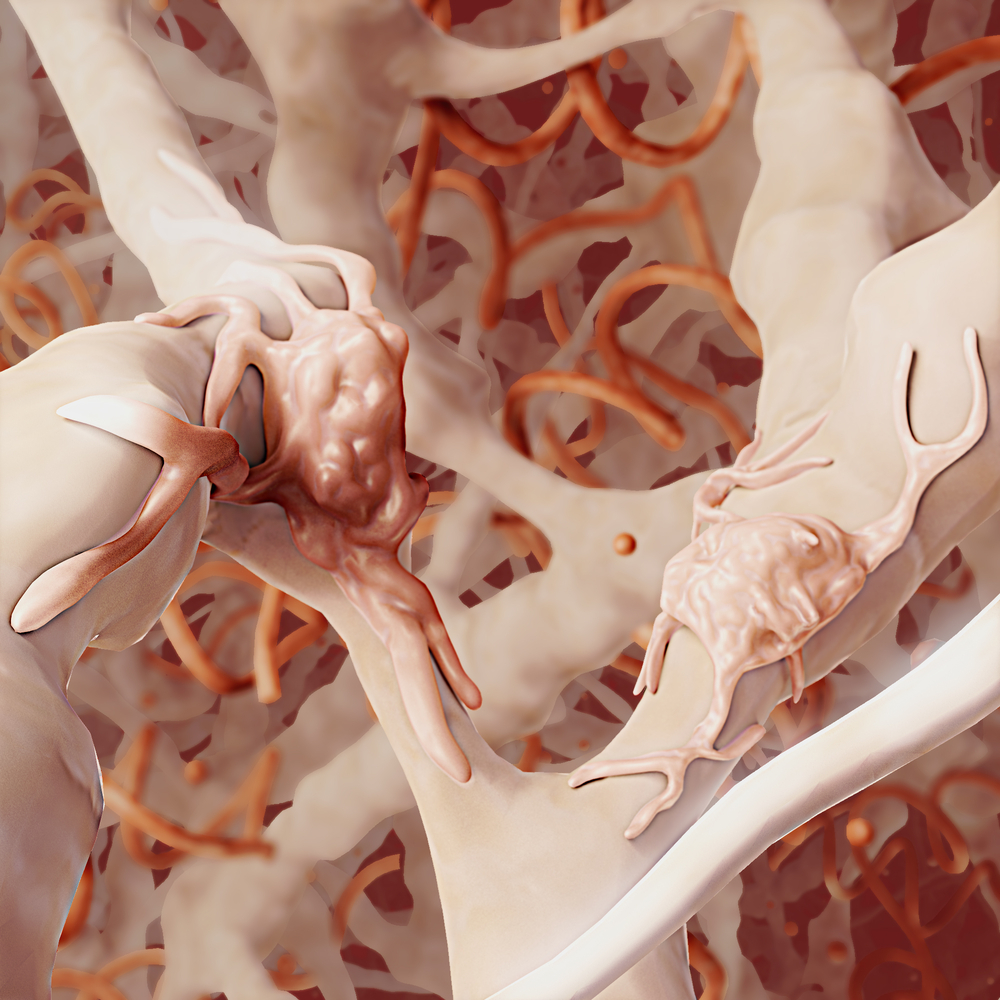In IPF Study, Fibroblasts Seen as More Aggressive with USP13 Loss

In a recent study entitled “Down-regulation of USP13 mediates phenotype transformation of fibroblasts in idiopathic pulmonary fibrosis,” a team of researchers investigated the differences in gene expression in fibroblast foci in patients with idiopathic pulmonary fibrosis (IPF). They found that the expression of a particular gene, USP13, was significantly decreased and associated with lower levels of a key tumor suppressor called PTEN. The team suggests that loss of PTEN enhances fibroblast aggressive behavior, contributing to IPF pathogenesis. The study was published in the journal Respiratory Research.
IPF is a chronic lung disease characterized histologically by focal areas of fibroblast-myofibroblast aggregates termed fibroblastic foci and a progressive scarring of lung tissue. The disease leads to shortness of breath and ultimately death. Fibroblasts from IPF patients were shown to behave more aggressively, exhibiting enhanced proliferation and increased migration and invasion capabilities. These characteristics resemble those from cancer cells, and are associated with genetic alterations that may promote the development of pulmonary fibrosis. The mechanisms underlying this phenomenon, however, remain poorly understood.
Here, authors compared the gene expression profile of fibrotic lung tissue retrieved from IPF patients and normal lung tissue from patients with primary spontaneous pneumothorax. The team found 1,476 genes whose expression significantly changed between the two groups of patients analyzed. They found an interesting gene called USP13 showing a significant down-regulation in IPF.
Previous studies suggested that USP13 depletion promotes tumorigenesis by decreasing the expression of a key tumor suppressor gene, PTEN. Here, authors found USP13 expression to be decreased in fibroblastic foci of primary lung fibroblasts isolated from IPF patients (as well as in foci from usual interstitial pneumonia lungs). Moreover, they discovered that USP13 deficiency resulted in aggressive fibroblasts with enhanced proliferative, migratory, and invasive capacities. As previously suggested, authors found USP13 loss to be associated with erased expression of PTEN in IPF fibroblasts.
The team highlights that the findings suggest that USP13 expression is decreased in IPF fibroblasts. As a consequence, and due to its role as a modulator of PTEN, PTEN’s expression is significantly decreased in IPF fibroblasts. Hence, loss of PTEN underlies alterations in fibroblasts enhancing their proliferative and migratory states, contributing to the IPF disease pathogenesis.







